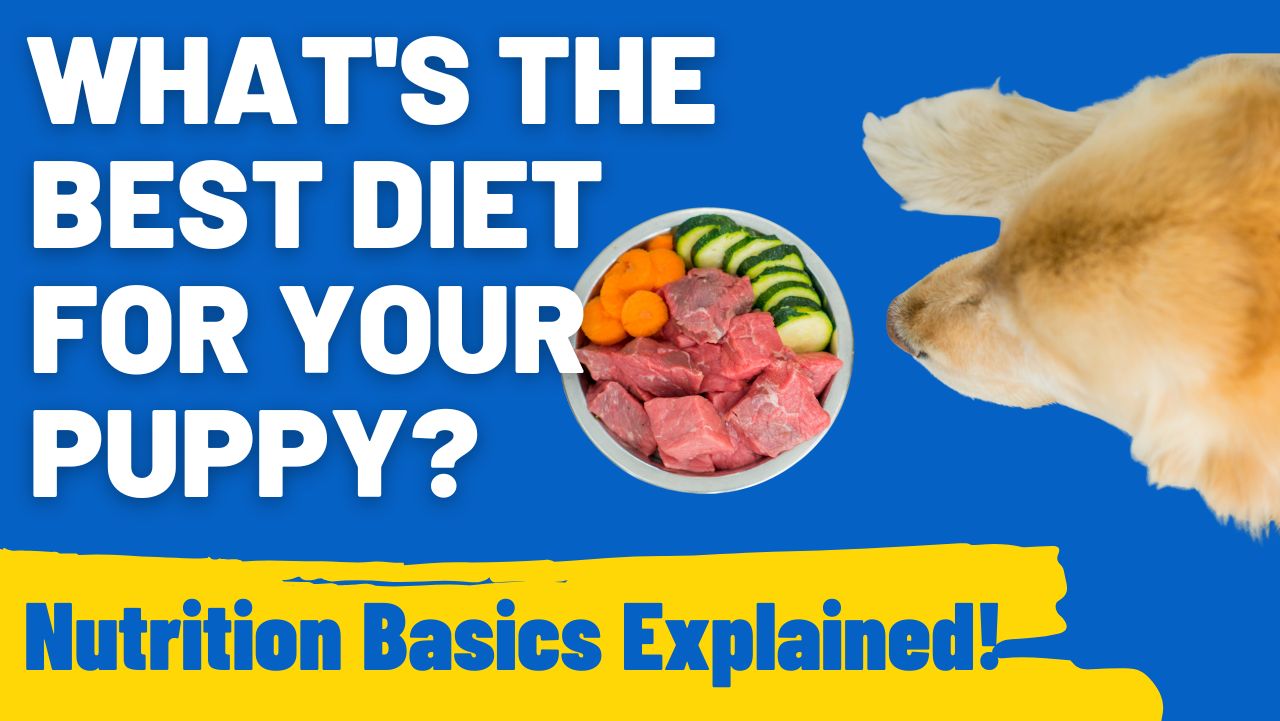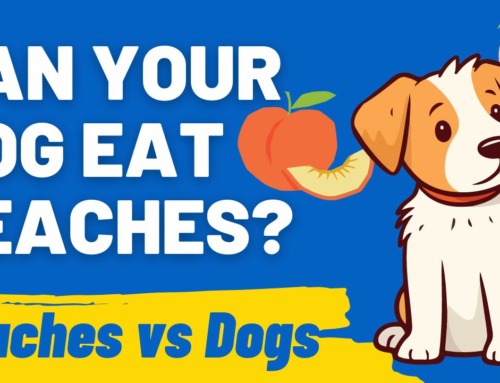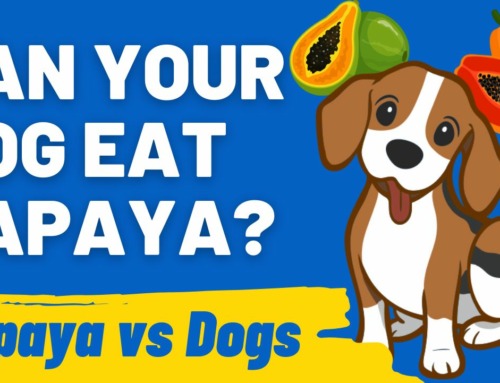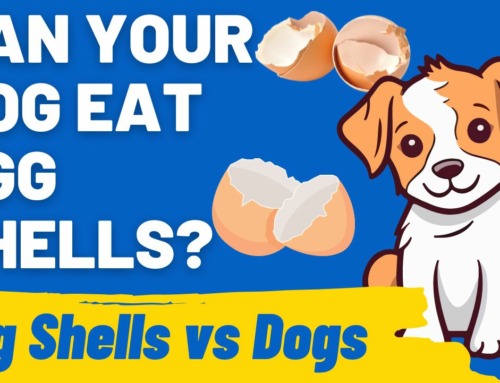When it comes to puppy nutrition basics, many pet owners find themselves at a crossroads. Understanding the best diet for your puppy is crucial for their growth and overall health.
Selecting the right food involves considering various factors, including the puppy’s breed, size, and activity level. It’s not just about the quantity of food but also the quality.
With that said, puppy nutrition basics aren’t just about feeding your dog; it’s about nurturing them.
In this blog post, we’ll explore the key components of a puppy’s diet, offer tips for choosing the right food, and discuss common dietary concerns. Let’s get started!
Why Is Nutrition So Crucial for Puppies?

When it comes to puppy nutrition basics, it’s not an exaggeration to say that a proper diet is the cornerstone of a puppy’s life.
The early stages of a puppy’s development are critical. During this time, they’re not just growing in size; they’re developing bones, muscles, and their immune system.
Just like a young athlete needs the right fuel to perform, your little pup needs the right nutrients to grow.
Think of puppy nutrition as the foundation of a house. Without a strong base, no matter how beautiful the house is, it won’t stand the test of time.
Similarly, without proper nutrition, a puppy might grow up with health issues, no matter how good their genetics are.
A balanced diet ensures that they develop strong bones, a healthy brain, and a robust immune system. This is essential for a long, active, and healthy life.
Moreover, proper nutrition isn’t just about preventing diseases. It’s also about ensuring your puppy has the energy to explore, play, and learn.
Remember, a well-nourished puppy is a happy and active puppy. By focusing on puppy nutrition basics from the start, you’re setting the stage for your puppy’s health and happiness in the years to come.
Interested in reading our post Why Clicker Training Works: The Science Behind Better Behaved Dogs?
What Constitutes a Balanced Diet for Puppies?
In the world of puppy nutrition basics, understanding what makes up a balanced diet is key. Puppies, like little balls of energy, require a mix of proteins, fats, carbohydrates, vitamins, and minerals to grow and thrive.
Let’s break down these components and see why each is crucial for your puppy’s health.
Proteins: Building Blocks of Growth
Proteins are the building blocks of your puppy’s body. They play a vital role in building muscles, tissues, and even new skin cells. Proteins are essential for growth and the repair of body tissues. They also contribute to a healthy immune system.
Quality sources of protein for puppies include chicken, beef, fish, and eggs. The key here is quality.
Your puppy needs high-quality, easily digestible proteins to make the most of these building blocks. Remember, more protein isn’t always better. It’s about the right balance.
Fats: More Than Just Energy
Fats are often misunderstood. They’re not just a source of energy; they’re crucial for your puppy’s overall health.
Fats help in the absorption of vitamins and provide essential fatty acids that are not produced by the body. These include omega-3 and omega-6 fatty acids, which contribute to brain development and a shiny coat.
Sources of good fats for puppies include fish oil and flaxseed. But moderation is key. Too much fat can lead to obesity, so it’s all about finding that perfect balance in your puppy’s diet.
Carbohydrates: Necessary or Not?
Carbohydrates often get a bad rap, but they are an important part of puppy nutrition basics. They provide energy, help with digestion, and can even contribute to brain function. Good sources of carbohydrates for puppies include whole grains and vegetables.
However, not all carbs are created equal. It’s best to avoid high glycemic carbs, which can spike blood sugar levels. Instead, opt for complex carbohydrates that provide steady energy.
Vitamins and Minerals: The Essentials for Health
Vitamins and minerals might be needed in smaller amounts than other nutrients, but they’re just as crucial. They play a significant role in bone development, nerve function, and overall health.
Calcium and phosphorus, for example, are essential for strong bones and teeth. Vitamins such as A, E, and C support the immune system and help maintain healthy skin and eyes.
It’s important to ensure your puppy gets these nutrients from their diet. However, be cautious with supplements. Over-supplementation can be harmful, so it’s best to consult with a vet.
How Does Puppy Nutrition Differ from Adult Dog Nutrition?
Puppies are like toddlers with boundless energy and growing bodies. They need more calories and specific nutrients to support this rapid growth phase.
Unlike adult dogs, puppies require a diet that’s rich in protein to build muscles and tissues. They also need a higher fat content for energy and development.
In contrast, adult dogs need a maintenance diet that focuses more on sustaining their health rather than growth. Their food typically has less protein and fat to prevent weight gain.
For puppies, it’s all about building the foundation for a healthy life, while for adult dogs, it’s about maintaining that health.
What Food Types Are Best for Puppies?
Navigating through the maze of puppy nutrition basics, one common question pops up: What type of food is best for puppies? Let’s delve into the world of dry kibble, wet food, raw diets, and homemade meals, exploring their pros and cons. Remember, every puppy is different, so what works for one may not suit another.
Dry Food vs. Wet Food: Pros and Cons
Dry Food
Dry kibble is a popular choice for many puppy parents. It’s convenient, cost-effective, and good for dental health, as chewing kibble can reduce tartar buildup. Plus, it’s easy to store and measure.
However, it may lack moisture, which is essential for your puppy’s hydration. Some pups also find dry food less palatable.
Sample Dry Foods:
- Chicken and Brown Rice Puppy Formula
- Lamb and Oatmeal Puppy Recipe
- Fish and Sweet Potato Puppy Food
Wet Food
Wet food is often more appealing to puppies due to its texture and aroma. It’s also high in moisture, which is a bonus for hydration.
Wet food can be beneficial for puppies who are picky eaters or those who need encouragement to drink water.
On the downside, it’s generally more expensive than kibble and can contribute to faster plaque buildup on teeth.
Sample Wet Foods:
- Beef and Vegetable Stew for Puppies
- Chicken and Rice Puppy Pâté
- Turkey and Garden Vegetables Puppy Entrée
Raw Diets and Homemade Meals: Are They Safe?

Raw Diets
Raw diets for puppies, consisting of raw meat, bones, fruits, and vegetables, are a topic of debate.
Proponents argue that it’s more natural and mimics what dogs would eat in the wild. It can lead to shinier coats, healthier skin, and higher energy levels.
However, there are safety concerns. Raw diets can be risky due to the potential for bacterial contamination and nutritional imbalances.
They require careful planning to ensure all nutritional needs are met.
Homemade Meals
Preparing homemade meals allows you full control over what goes into your puppy’s diet. It can be a good option for puppies with specific dietary needs or allergies.
However, the challenge lies in ensuring the meal is nutritionally balanced. Lack of certain nutrients can lead to health issues.
Always consult with a veterinarian or a canine nutritionist when opting for homemade meals.
Sample Homemade Meals:
- Boiled Chicken and Rice
- Ground Turkey with Peas and Carrots
- Beef and Sweet Potato Stew
Decoding Dog Food Labels: What Should You Look For?
In the realm of puppy nutrition basics, understanding dog food labels is like learning a new language. It’s essential, yet it can be tricky.
Let’s demystify this process. When choosing the best diet for your puppy, pay close attention to the ingredients and nutritional content on the labels.
Start with the ingredients list. Ingredients are listed by weight, so those at the top of the list make up the majority of the food.
Look for high-quality protein sources like chicken, beef, or fish as the first ingredient. This ensures your puppy is getting the building blocks they need for growth.
Next, scrutinize the guaranteed analysis. This section shows the minimum percentages of protein and fat, along with the maximum percentages of fiber and moisture. Puppies need a diet higher in protein and fat for their energetic and developmental needs.
Also, be wary of vague terms like ‘meat meal’ or ‘animal fat.’ These can come from any source and might not offer the quality protein your puppy deserves.
Instead, look for specific, named sources like ‘chicken meal’ or ‘salmon oil.’
Here’s a quick table to help you decode common dog food label terms:
| Term | Meaning for Puppy Health |
| Real meat | High-quality protein source |
| By-products | Secondary products, potentially lower quality |
| Meal (e.g., chicken meal) | Concentrated protein source, usually good |
| Whole grains | Provide energy and digestion support |
| Artificial colors/flavors | Unnecessary, sometimes harmful additives |
| Preservatives | Necessary for shelf life, but look for natural options |
| ‘Complete and balanced’ | Meets nutritional levels established by AAFCO |
How Often Should You Feed Your Puppy?
Puppies grow at an astonishing rate, and how often you feed them plays a big part in supporting their development.
Typically, puppies up to six months old should be fed three to four times a day. This frequent feeding supports their high-energy needs and aids digestion. As they grow older, you can gradually reduce feeding to twice a day.
Portion sizes are equally important. Overfeeding can lead to obesity, while underfeeding can hinder growth.
The portion size depends on the puppy’s breed, size, and energy levels. It’s always a good idea to consult your vet to determine the right amount.
Remember, consistency is key. Feeding your puppy at the same time each day helps regulate their digestion and keeps them on a healthy routine.
Are Supplements Necessary for Puppy Diets?
The answer isn’t a simple yes or no. In most cases, a well-balanced commercial puppy food will provide all the essential nutrients your puppy needs.
Supplements are generally not needed for a healthy puppy eating a diet formulated to meet their requirements.
However, there are exceptions. Puppies with certain health conditions, or those on homemade diets, might require supplements to address specific nutritional gaps.
Common supplements include fish oil for omega-3 fatty acids, which support skin, coat, and brain health, and glucosamine for joint health.
Always consult your veterinarian before adding any supplements to your puppy’s diet. Their advice is crucial to ensure your puppy gets what they need without the risks of over-supplementation.
Common Puppy Feeding Mistakes to Avoid
Feeding a puppy might seem straightforward, but common mistakes can impact their health. As part of understanding puppy nutrition basics, let’s highlight these errors:
- Overfeeding: It’s easy to give in to those pleading eyes, but overfeeding can lead to obesity and health problems. Stick to recommended portion sizes.
- Underfeeding: Conversely, underfeeding can hinder a puppy’s growth and development. Ensure you’re providing enough food, especially for active and larger breed puppies.
- Inconsistent Feeding Schedules: Puppies thrive on routine. Feeding them at irregular times can disrupt their digestion and overall health.
- Ignoring Life Stage Requirements: Puppies have different nutritional needs than adult dogs. Feeding them adult dog food can deprive them of essential nutrients.
- Excessive Treats: Treats should only make up a small percentage of a puppy’s diet. Too many can lead to nutritional imbalances.
When to Transition Your Puppy to Adult Dog Food
Transitioning from puppy food to adult dog food is a significant step in your pet’s life. T
Typically, this change should occur when your puppy reaches maturity. For most breeds, this is around the 12-month mark, but larger breeds may take longer to mature.
The process should be gradual to avoid digestive upset. Start by mixing a small amount of adult food with their puppy food, gradually increasing the adult food proportion over a week or two.
Keep an eye on their reaction to the new diet and consult your vet if you have any concerns.
This careful transition is a key part of puppy nutrition basics, ensuring a smooth shift to adult dietary needs.
Conclusion
Understanding puppy nutrition basics is vital, but remember that every puppy is unique. Tailoring their diet to their specific needs is crucial.
Consider factors like breed, size, and health conditions. Some breeds may need more calories, while others might require a diet with specific nutrients.
Regular vet check-ups are essential to monitor your puppy’s health and adjust their diet as needed. By paying close attention to these details, you can ensure your puppy grows into a healthy, happy adult dog.
Looking for more insights into puppy care and nutrition? Check out HoundGames for a wealth of information and tips on keeping your furry friend healthy and happy!




